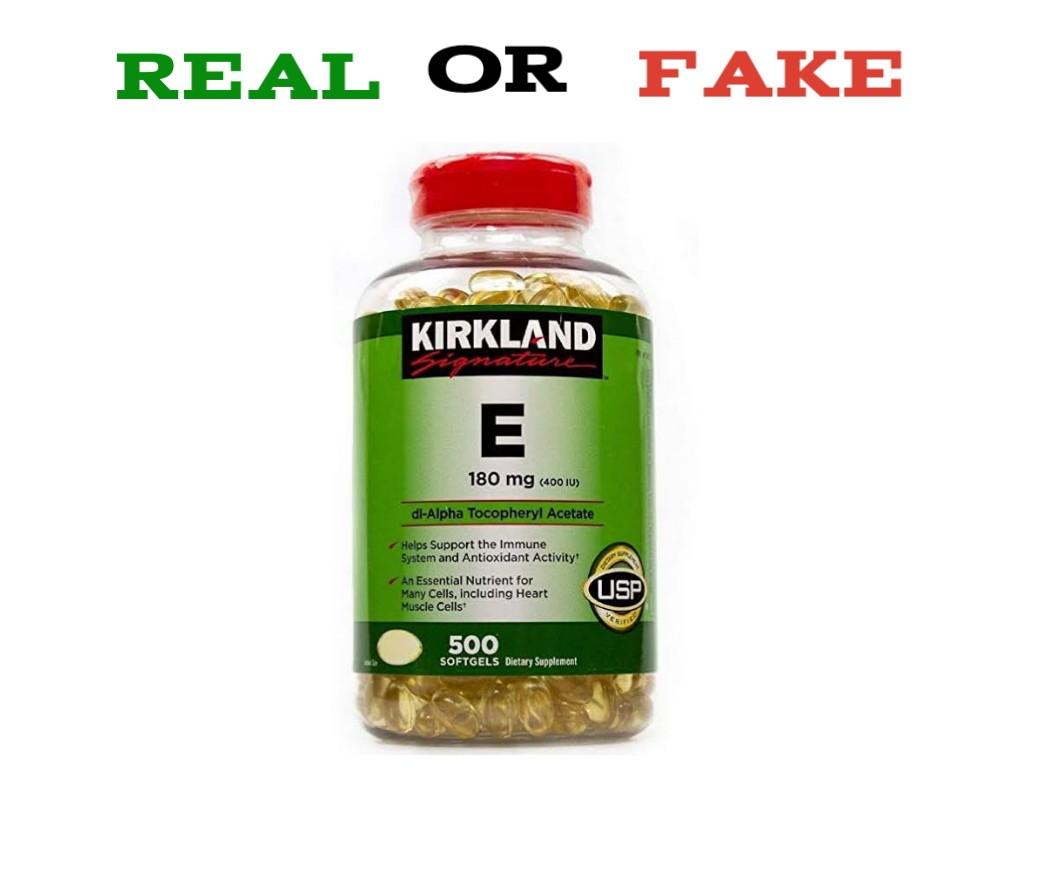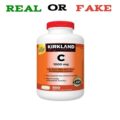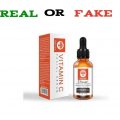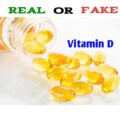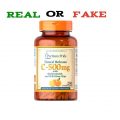Original Kirkland Signature Vitamin E is a gluten and preservatives free antioxidant and an essential nutrient for many cells, including heart muscle cells. Vitamin E helps support the immune system and antioxidant activity. Vitamin E is key for strong immunity and healthy skin and eyes. In recent years, vitamin E supplements have become popular as antioxidants. These are substances that protect cells from damage. However, the risks and benefits of taking vitamin E supplements are still unclear.
Many people use vitamin E supplements in the hopes that the vitamin’s antioxidant properties will prevent or treat disease. But studies of vitamin E for preventing cancer, heart disease, diabetes, cataracts, and many other conditions have been disappointing.
Many scientific studies show that people who consume lots of foods that are rich in vitamin E have better health, including lower rates of heart disease, strokes, several cancers, and Alzheimer’s disease. Of course, those foods also contain other substances that are good for our health. So these studies offer no proof that it is the vitamin E, specifically, that protects us against those diseases.
Nevertheless, to test that possibility, scientists have conducted randomized trials of vitamin E supplements (not vitamin E–rich diets). On balance, the results have been quite disappointing. So far, the only established benefits of vitamin E supplements are in people who have an actual deficiency. Vitamin E deficiencies are rare. They’re more likely in people who have diseases, such as digestive problems and cystic fibrosis. People on very low-fat diets may also have low levels of vitamin E.
How To Spot Fake Kirkland Vitamin E
If you’re scouring the internet for the cheapest deals on your daily vitamins, you may want to take a closer look at where your products are really coming from… and what’s really in them. Dietary supplements are regulated by the Food and Drug Administration’s Center for Food Safety and Applied Nutrition, under the Dietary Supplement Health and Education Act of 1994, or DSHEA, which classifies dietary supplements as a special category of food.
Under DSHEA, supplement manufacturers and distributors are responsible for substantiating the quality and the safety of the dietary ingredients they use. They are responsible for ensuring that product labeling meets all the requirements. However, dietary supplement manufacturers are not required to get FDA approval before producing or selling dietary supplements, nor are they required to demonstrate clinical efficacy as required for drug products.
Here are a few things you can do to avoid buying fake Kirkland Vitamin E. One of them is a verification seal by the 200-year-old US Pharmacopeia, or USP. Also, when shopping online check who’s selling the product. On Amazon, for instance, the seller’s name is listed after the name of the product you’re looking to purchase.
Unlike medications, supplements aren’t subject to rigorous testing and federal regulations. But a few organizations, including USP, try to fill that gap by testing and verifying products.
The best way for consumers to protect themselves is to ensure that they’re purchasing a quality supplement that has a verified mark like USP. And that’s really important given the size and diversity of the products and ingredients and the rapid pace with which new dietary supplements are introduced into the market.
It’s also advisable for consumers to purchase the supplements from reputable outlets, whether it’s a retail store or the Internet. Because if you’re dealing with a reputable retailer, they’re going to be taking the necessary precautions to ensure that the products that they’re selling on their shelves are of good quality.
And use your common sense. If it sounds too good to be true, it probably is. Just don’t take things at face value. Always double check using verification website for a listing of products that are approved to carry the USP mark.
Remember, there’s no low barrier of entry into the marketplace for supplements, unlike drugs. There are products out there that claim to be dietary supplements but not NOT. SEE: How to Spot Fake Vitamin D Supplements


